One of the most important ways Cyprus celebrates Christmas is through food. An enormous amount of cooking and hard work starts to prepare the food for Christmas.
KOURABIEDES
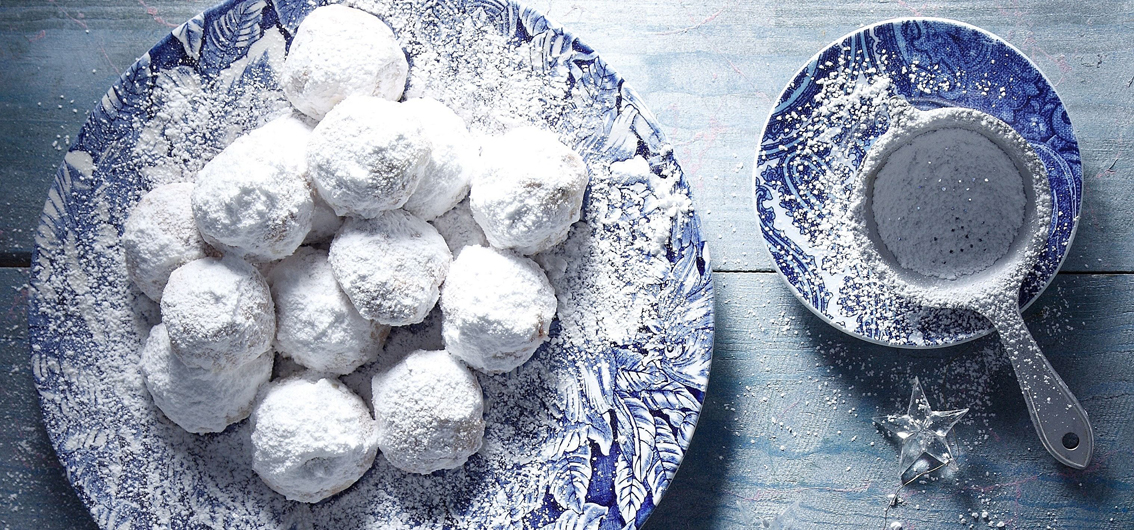
Kourabiedes or kourabiethes resemble a light shortbread, typically made with almonds. Kourabiedes are sometimes made with brandy, usually Metaxa, for flavouring, though vanilla, mastika or rose water are also popular. In some regions of Greece, Christmas kourabiedes are adorned with a single whole spice clove embedded in each biscuit. Kourabiedes are shaped either into crescents or balls, then baked till slightly golden. They are usually rolled in icing sugar while still hot, forming a rich butter-sugar coating.Kourabiedes are especially popular for special occasions, such as Christmas or baptisms.
MELOMAKARONA
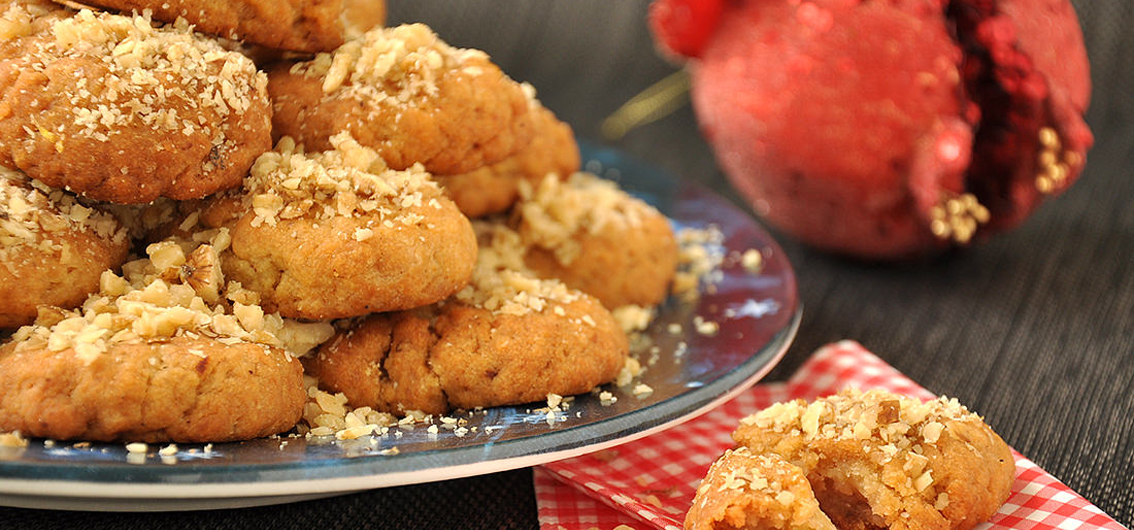
Melomakarona: Greek Christmas Honey Cookies stuffed with dates andnuts. Along with the Kourabies it is a traditional dessert prepared primarily during the Christmas holiday season. Typical ingredients of the melomakarono are flour or semolina, sugar, orange zest and/or fresh juice, cognac (or similar beverage), cinnamon and olive oil. During rolling they are often filled with ground walnuts. After baking they are immersed for a few seconds in hot syrup made of honey and sugar dissolved in water. Finally, they are decorated with ground, as well as bigger, pieces of walnut. Dark chocolate-covered melomakarona are also a more recent variation of the traditional recipe.
EGG LEMON SOUP OR SOUP OF FRUMENTY
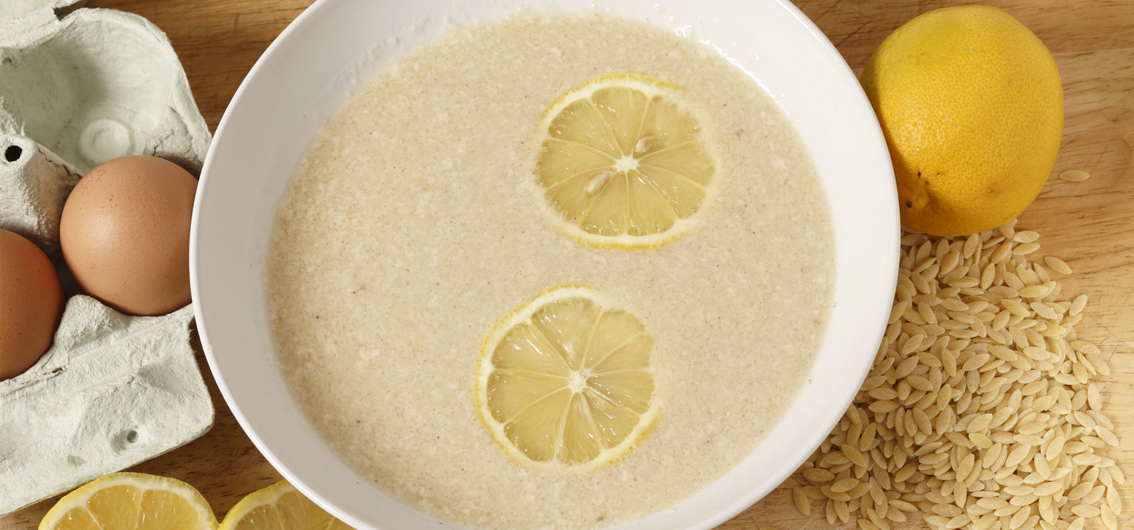
On Christmas day people go to church. After that, they go to their houses and all the family sat in the table with their best men and ate pork meat, soup of frumenty or soup of egg lemon, in a cheerful pleasant and festival familial environment.
SOUVLA
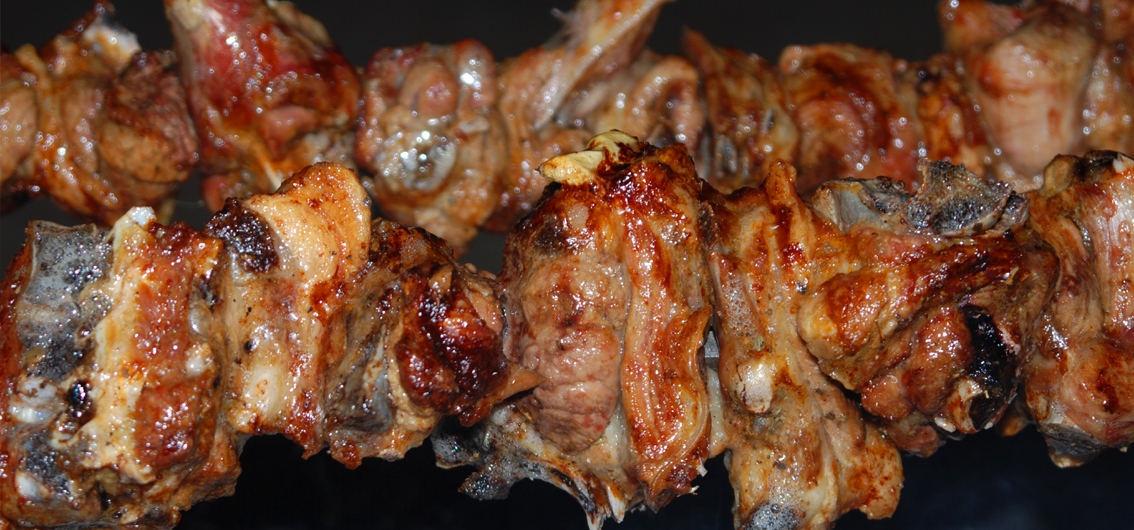
The time for family gatherings and holiday meals. Dishes such as stuffed turkey ,or “Souvla” which is roasted lamb or pork meat cooked on charcoal, are traditionally eaten on Christmas day.
VASILOPITTA
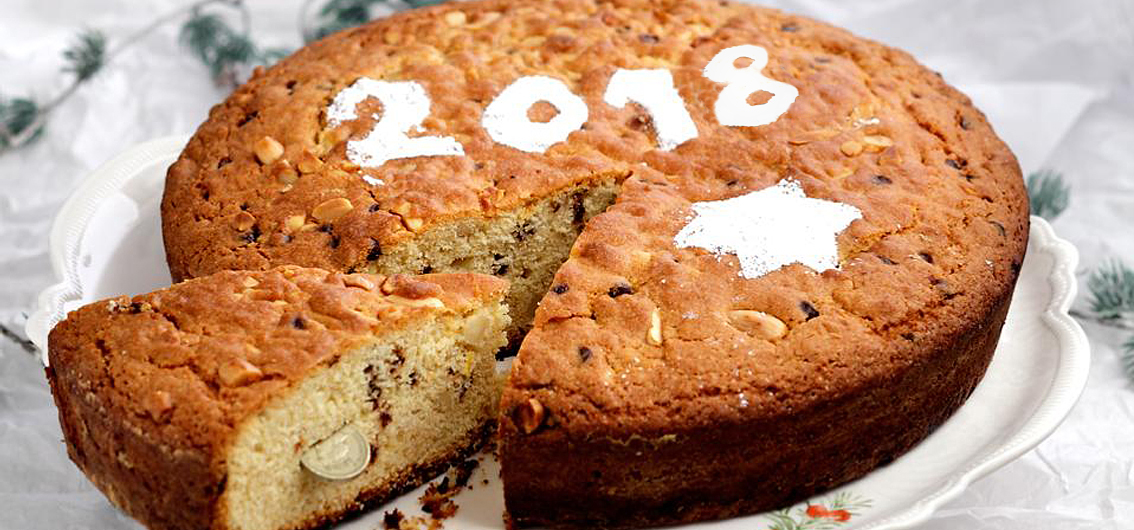
Vasilopitta is a traditional cake which is made on the, 1st of January every year especially for Ayios Vasilios. They cut it into pieces and one piece has a coin inside. The person who finds it, is believed to be lucky for the rest of the year.
CHRISTMAS CAKE
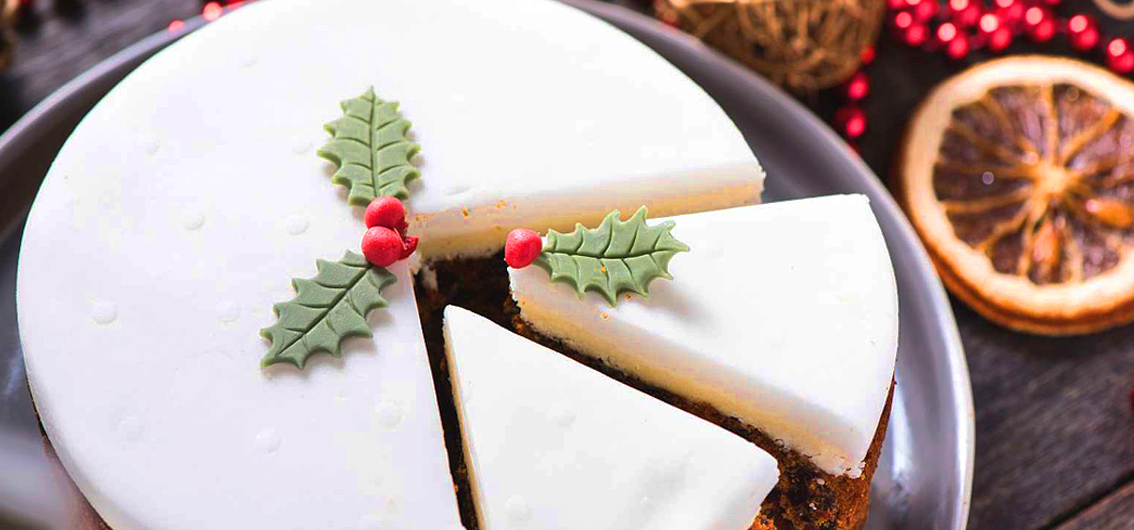
Every housewife prepares a “Christmas Cake” which decorates the Christmas table for many days. It’s a cake made with a lot of dried fruit and nuts. On the top of it, white icing is spread which represents snow. It is decorated with various Christmas decorations.
OLIVE GAME
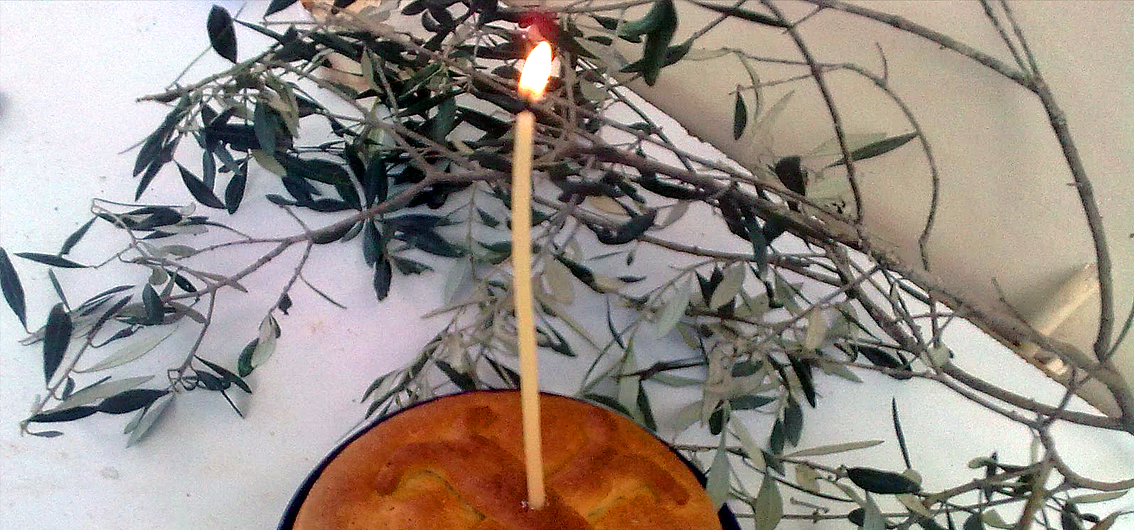
A common village tradition is to cross a leaf of olive tree by a fireplace and then, after making a wish to Saint Vassilis, toss it into the fire. Before tossing the dry leaf into the flames, you would say ” Saint Vassili King, show and illuminate if I am loved by…and then you name whoever’s love you are hoping for. If the leaf jumps up after you dropped it in the fire, then that means the person loves you. If not, you try again.
"KALANDA" (CHRISTMAS CAROLS)
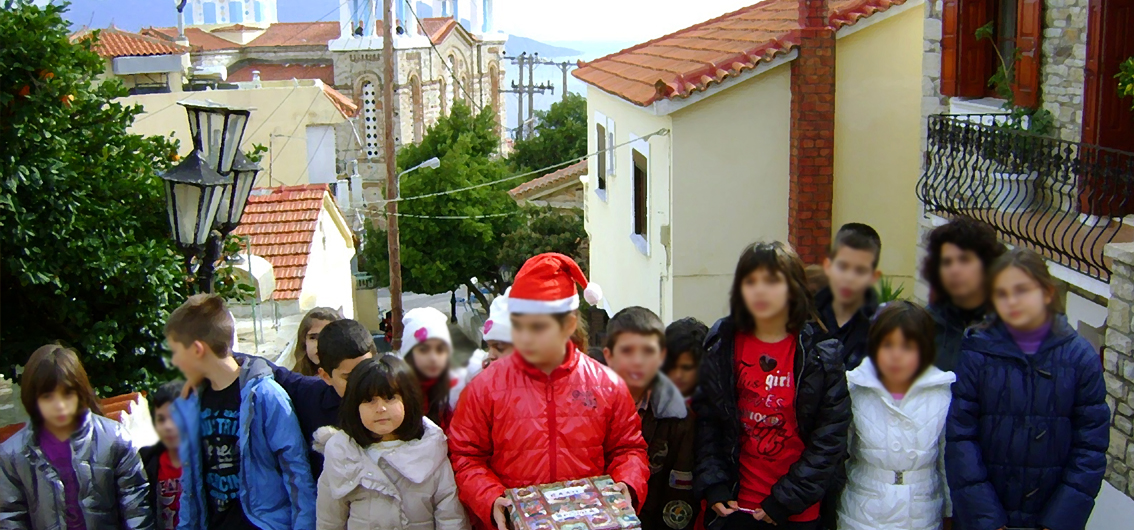
During the Christmas period we sing carols called “kalanda“ which have been handed down from Byzantine times. These Carols are usually sung , by children and teenagers who go round their neighbourhood in groups .The house owners give some money and some sweets.
SAINT VASILIS DAY (SANTAS DAY)
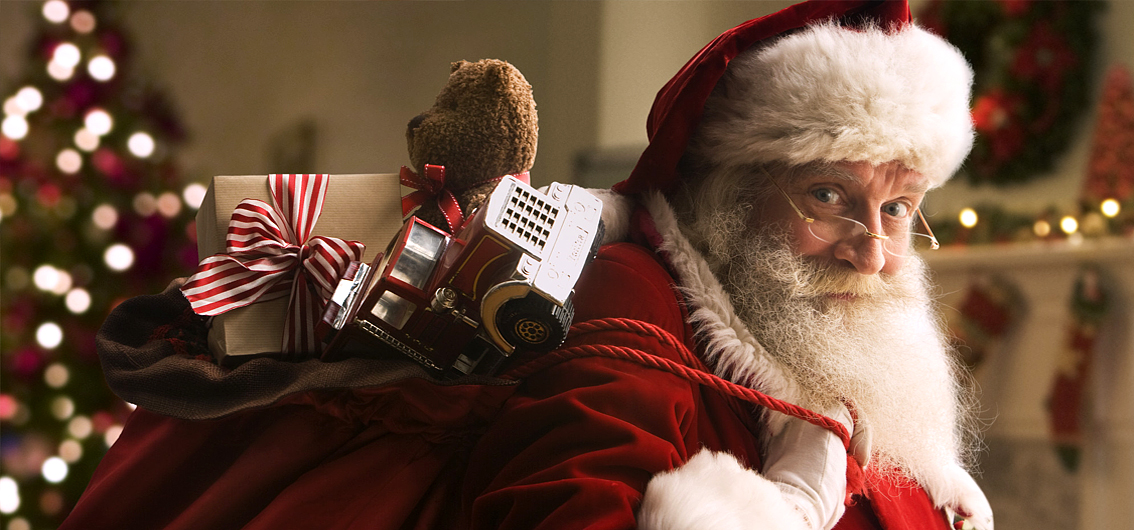
In Cyprus children used to get their presents on New Year’s Day as this day is also Saint Vasilis Day. Saint Vasilis is the children’s favorite Saint because he always comes with a bag full of presents. So on New Year’s Eve, after the children had gone to bed, their mother puts under the Christmas tree a piece of vasilopitta and a glass of wine for Santa. The children wake up early in the morning to open Santas presents.
KSEROTIANA - KALIKANTZARI & (LOUKOUMADES)
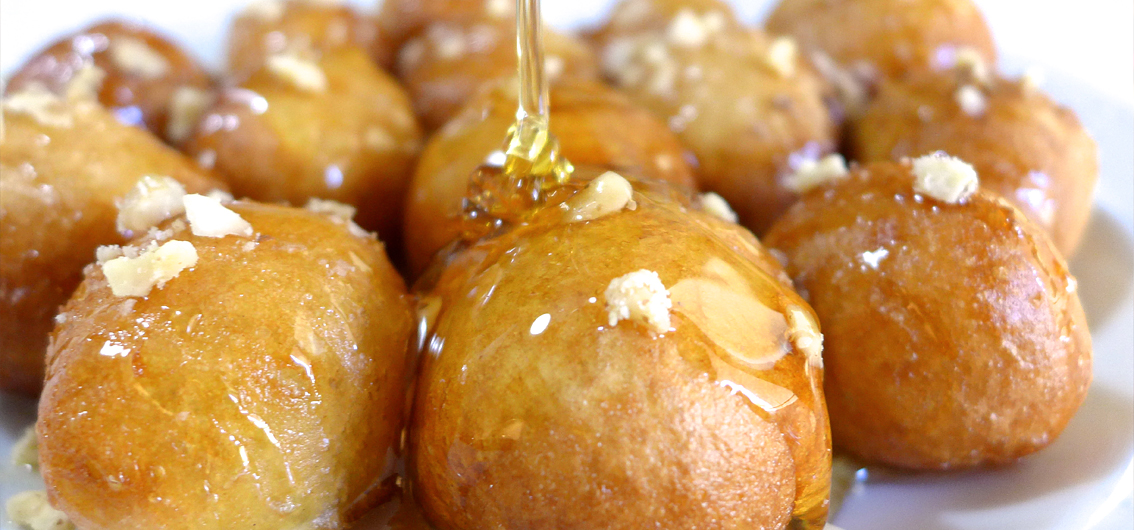
On Epiphany Day, housewives baked “kserotiana” or “loukoumades” which is a kind of doughnut. They used to throw some doughnuts on the houses’ roofs so bugbears, or else “kalikantzaroi”, would eat and leave. After Mass, the village’s priest went around all the houses and sprinkled people with holy water. This custom is known as “Kalanta”. He was accompanied by a child who held the container with the holy water. All people would throw some coins in the container, as a gift to the priest. All children went around the houses singing, in order to gain some money, known as “ploumisma” in the Cypriot dialect.
